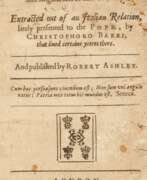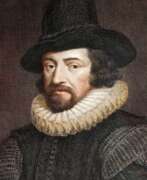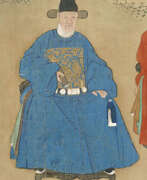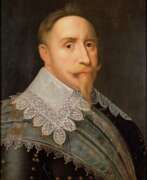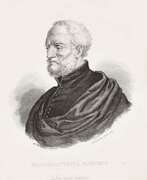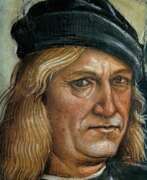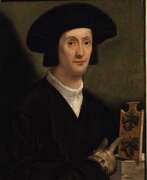Politicians 16th century
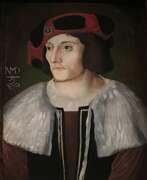

Niklaus Manuel Deutsch was a Swiss painter, graphic artist, poet and political reformer.
Niklaus Manuel Deutsch's artistic style is influenced by the Renaissance and Albrecht Dürer. Along with Holbein, he is considered the most important representative of the Renaissance in Switzerland. He created designs for jewellers, altarpieces, portraits and other paintings. His richly coloured canvases depict mainly mythological and biblical scenes.
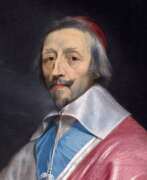

Armand-Jean du Plessis, duc de Richelieu, also known as Cardinal Richelieu or the Red Cardinal (French: l'Éminence rouge) was a Roman Catholic cardinal, aristocrat and statesman of France.
Armand Jean's father, François du Plessis, Signor de Richelieu, was the grand proclaimer (chief magistrate) of Henry III, but left his family devastated at his death. At the age of 22, Armand was ordained a priest and began to build a career. Thanks to his intellectual talents, he was soon appointed chaplain to the new Queen Anne of Austria, and in 1616 he was appointed Secretary of State for War and Foreign Affairs. Further events and a palace coup led to his exile, but he returned to Paris five years later.
The Duc de Richelieu became a cardinal in 1622, and from 1624 until his death in 1642 he was chief minister to King Louis XIII of France. His main goals were to establish royal absolutism in France and to end the Spanish-Habsburg hegemony in Europe. He made significant strides in reforming France, especially in terms of the administrative structure of the government.
The intrigues of his opponents accompanied the Duc de Richelieu throughout his political life. In the last years of his life he found himself involved in religious conflicts, in opposition to the pope in a struggle with the French church over the distribution of revenues intended to finance the war.
Richelieu possessed outstanding intellectual ability, willpower, and industriousness. He directed his own wealth to patronizing the arts and the University of Paris; he established the French Academy. Richelieu was also a talented playwright and musician.
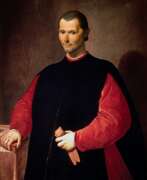

Niccolò di Bernardo Machiavelli was an Italian philosopher, politician and diplomat, historian and Renaissance writer.
As a young man, Niccolò Machiavelli faced financial difficulties due to his father's debts, but had access to a rich library. Machiavelli's early life and career began during a period of political upheaval in Italy. After the expulsion of the Medici family in 1494, for 14 years Niccolo Machiavelli served as a diplomat to the Florentine Republic. During this service, he gained a reputation as a cunning and unconventional thinker. However, when the Medici returned to power in 1512, Machiavelli was dismissed, imprisoned, and temporarily removed from political life.
During this period Machiavelli wrote his famous work The Sovereign, which has become one of the key works in the history of political philosophy. This book epitomizes the Machiavellian approach to politics, where the means justify the end, and where a leader should use any method to consolidate his power. The treatise drew criticism from the Pope, who condemned it for supporting rule through deceit and fear. Nevertheless, The Sovereign is still an important work of political literature, and Machiavelli has come to be called "the father of modern political theory."
Machiavelli lived the rest of his life in a small village near Florence, where he continued his creative endeavors, writing On the Art of War, as well as poems and plays. His literary legacy has become an integral part of the history of political philosophy.
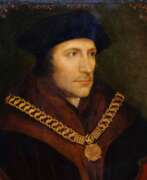

Thomas More was a British lawyer, humanist philosopher, writer and statesman.
As the son of a London judge of the Royal High Court, Thomas studied at Oxford and then in London with the best lawyers. More also studied the works of the ancient classics, improved in Greek and Latin languages, composed his works. In 1497 More met and became friends with Erasmus of Rotterdam, became a member of his humanist circle.
In 1510-1518 Thomas More was deputy sheriff of London, and in 1517 entered the service of the king, becoming one of the most effective and trusted civil servants of Henry VIII. He acted as his secretary, interpreter, speech writer, chief diplomat, counselor, and confidant. He was knighted in 1521, became Speaker of the House of Commons in 1523, and in 1525. - Chancellor of the Duchy of Lancaster. Around 1515. More wrote The History of Richard III, and in 1516 he published his most significant work, Utopia, in which he described an imaginary ideal state.
Thomas More opposed the divorce of King Henry VIII from Catherine of Aragon and refused to recognize the king as the head of the Church of England, as required by the Act of Supremacy in 1534. For his refusal, he was beheaded in the Tower of London in 1535. 400 years later, in 1935 Thomas More was canonized by the Catholic Church, and in 1980 the Church of England recognized him as a "saint and hero of the Christian Church."
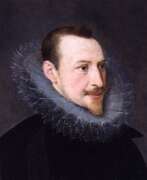

Edmund Spenser was an English poet of the Queen Elizabethan era.
Spenser studied Latin and Greek, as well as literature and religion, at Pembroke Hall, Cambridge University. In 1579 he published his first poetry collection, Shepherd's Calends. He is also the author of a major English epic, The Fairy Queen (1596), a fantastic allegory celebrating the Tudor dynasty and Elizabeth I, and the sonnet cycle Amoretti and Epithalamion (1595).
Alongside his poetry, Spenser pursued a political career, serving as secretary first to the Bishop of Rochester and then to the Earl of Leicester, who introduced him to other poets and artists at Queen Elizabeth's court. In 1580 he was appointed secretary to the Lord Viceroy of Ireland, and later wrote a pamphlet, A View of the Present State of Ireland.
In 1598, during the Nine Years' War, Spenser was banished from his home in Ireland, died in London in 1599, and was buried in Poets' Corner in Westminster Abbey.
Edmund Spenser's poems were characterized by outstanding craftsmanship and lyrical beauty, a style later called the Spenserian stanza. Today his work is widely studied as one of the main representatives of the English literary Renaissance.
